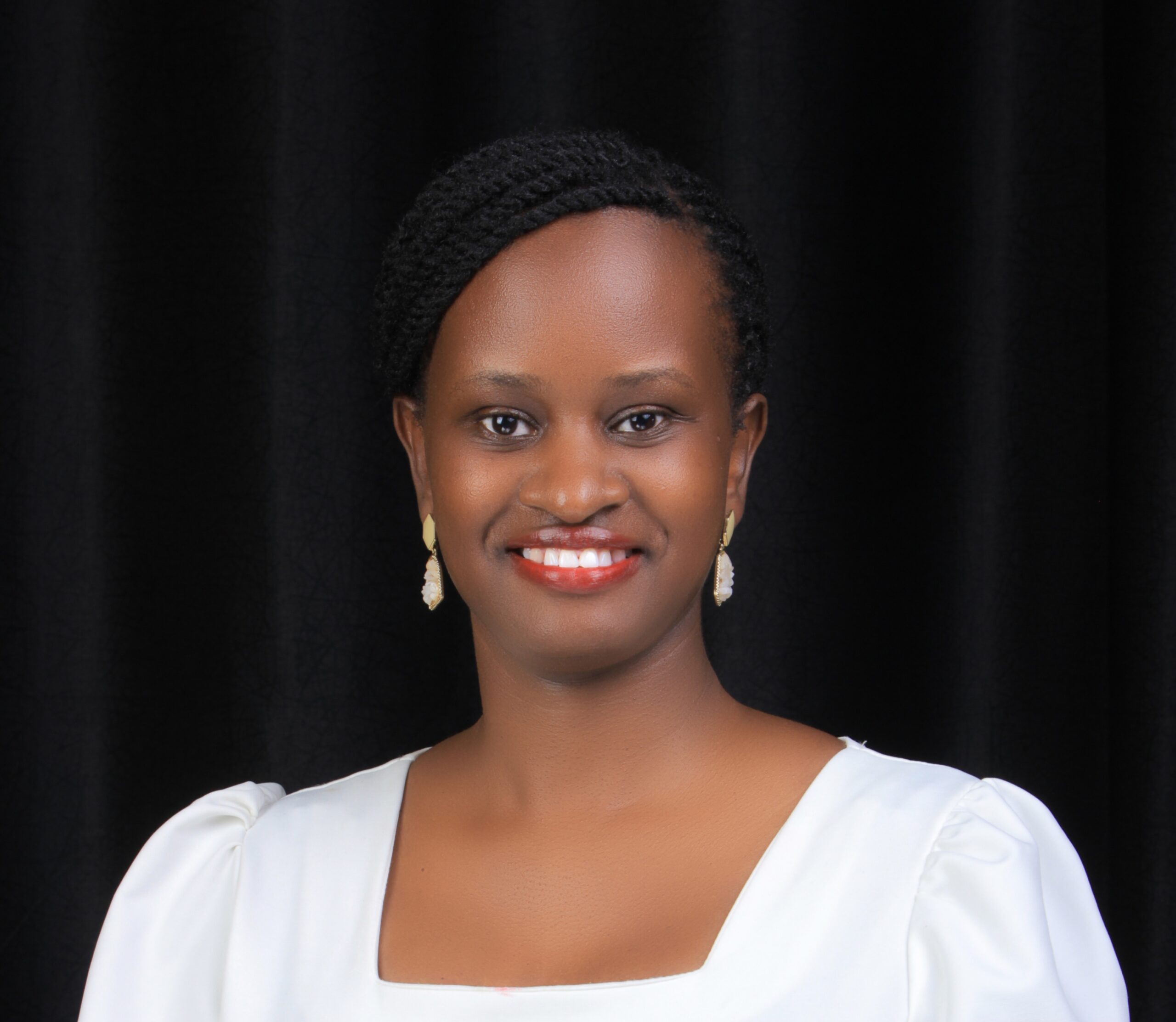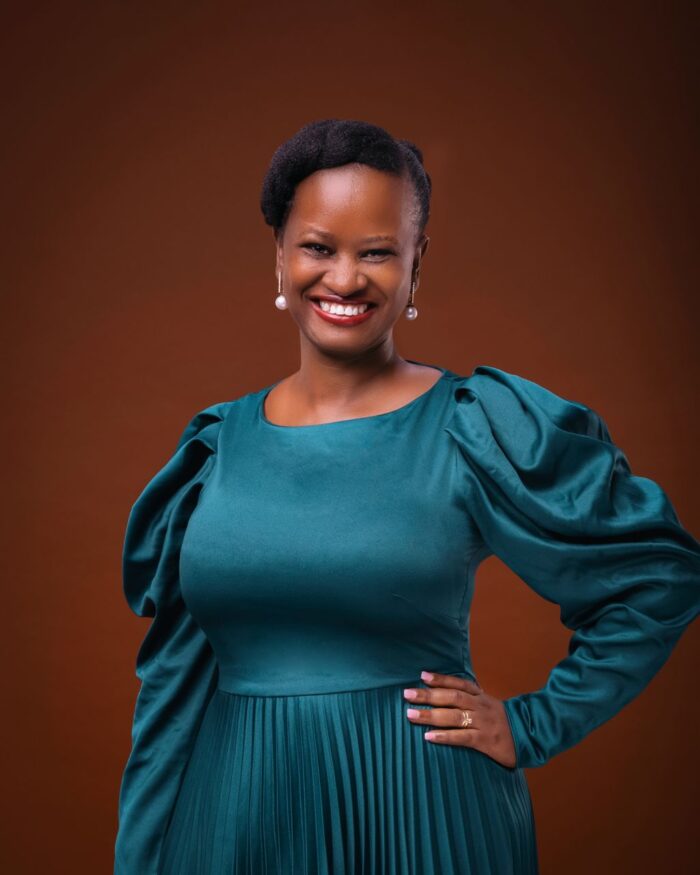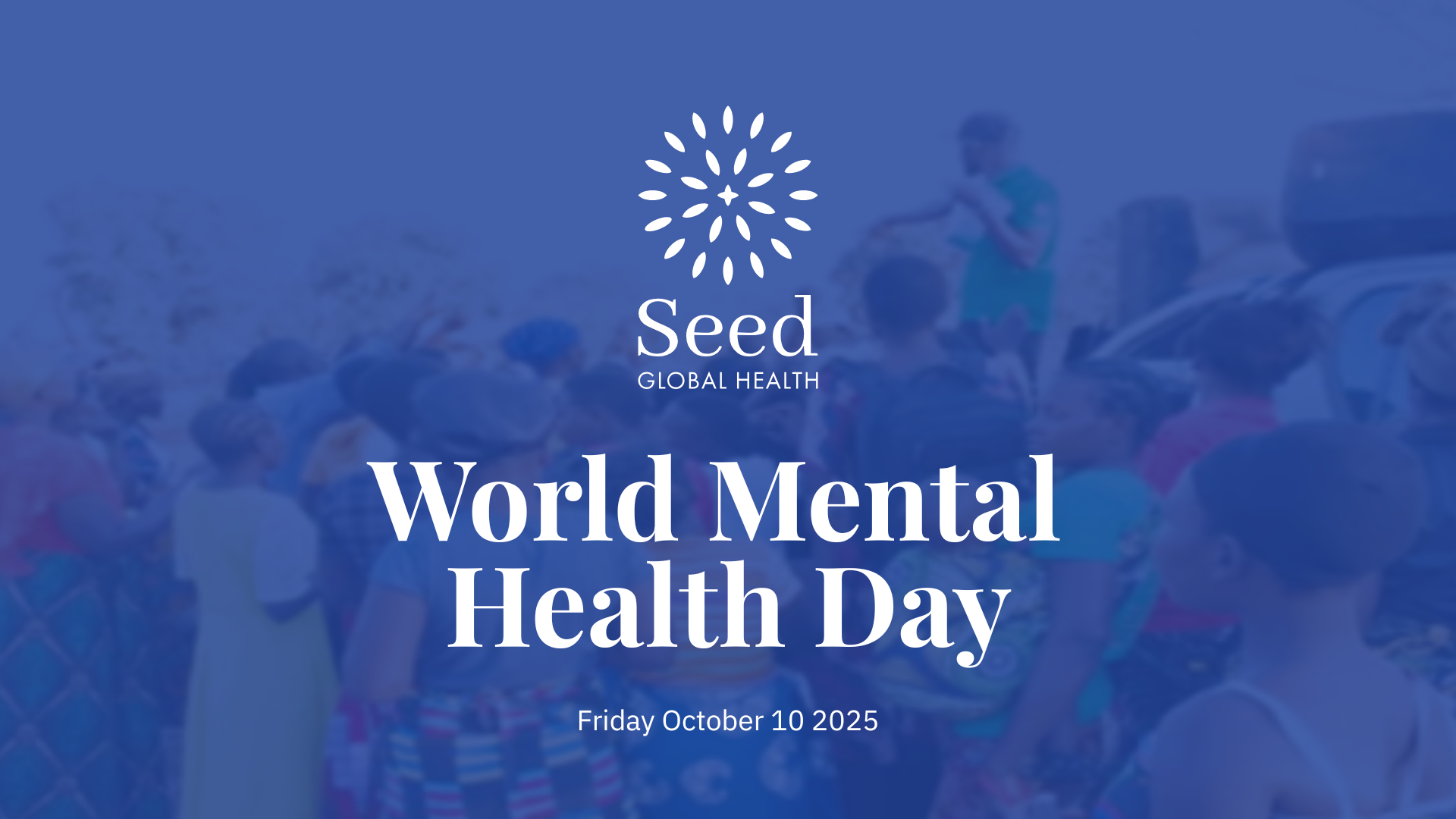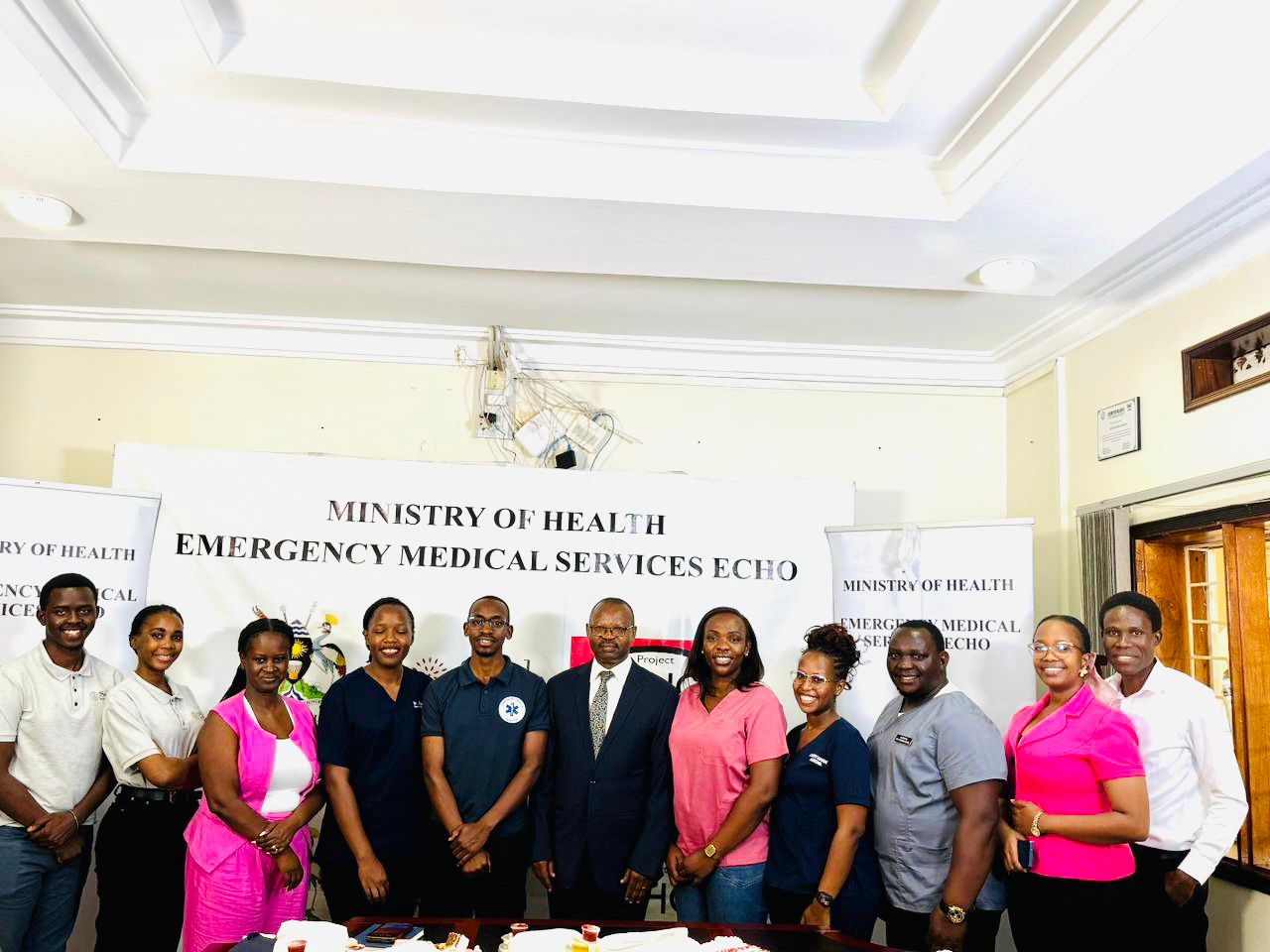
Leadership, Life, and Lessons: A Conversation with Irene Atuhairwe
We’re running a series to get to know our country directors—the people behind the leadership. They share their journeys, insights into their work, and a glimpse into their personal lives. In the second interview of the series, Irene Atuhairwe, Country Director for Uganda, talks about how she got into public health, lessons in leadership, and how she likes to unwind outside of work.
What did you dream of becoming when you were younger and how does that dream show up in your life today?
I wanted to be a lawyer. I remember telling my mother, “I’m going to be a lawyer, and I’ll buy you things.” For a long time, I truly believed that’s what I’d become. The Ugandan education system works in a way that the subjects you excel in at school influence the course you pursue at university. I did well in both sciences and arts, but ultimately, I was offered nursing, which I’d listed as my second choice at Makerere University.
Once we started the clinical work, though, I found myself drawn in. I felt at home supporting people during their most vulnerable times. I had people suggesting I switch, but it didn’t feel right. I felt aligned with the work.
As nurses, one of our key roles is to advocate for patients and their best interests. This aligned well with me as I have always been an advocate and a voice for others since childhood. Later in my other roles, I still found myself speaking up, whether for a group or an individual, especially when something wasn’t right. So even though I didn’t become a lawyer, that spirit of advocacy stayed with me.
How does your background in nursing/midwifery influence your work?
Because our work focuses on training health professionals, both those already in service and those still in school, my nursing background gives me a strong foundation. I have been there. I understand what students and health workers go through. While I understand the nursing field more deeply and at a personal level, the challenges cut across other health professions.
My background helps me support institutions better because I know the gaps, but I also see the opportunities, especially around improving health professional education and practice. And when it comes to the impact we want to have, like reducing maternal or newborn deaths, my clinical experience makes a difference.
I worked at Mulago National Referral Hospital and later in Fort Portal, Bushenyi, and Kyamuhunga, mostly in outpatient HIV care. That hands-on experience shaped how I see the health system, not just from a theoretical perspective, but from real-life practice. I have seen how things work on the ground, what’s possible, and what the limitations are.
So now, when we talk about impact, whether in training or patient outcomes, I know it’s not always immediate or one intervention that will lead to results. I know it requires a multitude of interventions across different pillars that leads to improved outcomes at population level. It helps me stay patient, because I understand the steps it takes to get there. Having lived and worked in the system allows me to empathize more, advocate better, and support our work with a grounded, practical perspective.
What’s the biggest lesson you have learned in this role and if you could pass along one piece of wisdom to future health leaders, what would it be?
The biggest lesson for me has been humility. As a leader, you may have big ideas and goals, but you quickly realize you can’t achieve anything alone. You need other people, and to work well with others, you have to be humble.
I’ve also learned that a leader is only as good as their team. You can be excellent as a person, but if your team isn’t supported or empowered to do their part, you won’t get far. So, part of leadership is understanding where people are struggling and helping them get to where they need to be.
I remember a former boss of mine, Loucine Hayes at Peace Corps, used to say, “We are in this together,” no matter what the issue was. That really stuck with me. That mindset of oneness where no one feels more superior or important than others is what makes it possible to achieve what we set out to do and it makes it easy to manage any challenges that come our way.
The advice I’d share is that leadership is about understanding that it’s not just about you. You have to think about the people you work with, your team and whether they have what they need to succeed. You also have to be able to inspire others to buy into the same vision because you can’t be everywhere at the same time. If your team doesn’t see the bigger picture or doesn’t feel ownership, things will fall through the cracks.
Right now, I’m in Lira for the reopening of a renovated operating theatre. Originally, we wanted to focus on just improving the obstetric theatre because there were delays in care, especially for mothers needing C-sections, because of limited beds and equipment to conduct these operations. But eventually, we realized we couldn’t just renovate this room alone, we had to upgrade the entire theatre as one needs to go through the entire theatre to get to the obstetric theatre, so it was necessary to look at the entire theatre and not just one of the five operating rooms.
That project is one representation of teamwork in action. You may start with one goal, but once the team understands the full need and shares the vision, you are able to do something even bigger than you had initially planned. The entire team from finance and administration to the technical teams and hospital leadership worked together to achieve this.
What’s your hope for Seed’s work in your country over the next five-ten years?
We have a clear strategy that takes us through to 2030, with clear objectives laid out. The biggest dream I hold onto, is seeing real change in health outcomes. I want to see us make a dent in maternal, newborn, and adult 24-hour mortality – to see those numbers drop significantly. Our target is to reduce it by 30% across the board.
I hope that through Seed’s work, the health facilities we support, and the country as a whole, can deliver better, higher-quality care for mothers, newborns, children, and adults. Care that truly leads to better outcomes and transforms lives across Uganda.
Another important area is increasing access to specialized care. So many people need it but can’t access it. My hope is that by growing the number of specialists, like emergency medicine doctors, emergency nurses, midwives, neonatologists, and neonatal nurses, we can fill those gaps and make a real difference in the health and well-being of Ugandans.
What’s a favorite food that brings back memories and who do you think of when you eat it?
My favorite food is pilau (a spiced rice dish).
Growing up, whenever I would fall sick, the way my family knew I was getting better was when I asked for pilau. It became this symbol of recovery and a celebration that I was back to my fully healthy self.
And I remember we had Muslim neighbours, and during Ramadan, they would always share their pilau with us. My friend’s father used to say, “Let’s give Irene some pilau,” and I would be the happiest child ever.
To this day, pilau is still my comfort food. I know it’s simple, not fancy at all, but for me, it’s like a piece of heaven on earth on a plate.
How do you like to spend your downtime outside of work?
I love spending time with my family. My favorite kind of weekend is one where I don’t have a packed schedule, no events to attend, no errands to run, just time at home. That’s when I feel the most relaxed.
I also enjoy traveling with my family during the holidays, but honestly, the best times are the simple ones, just being at home, laughing, talking, and being together.
When you think about your journey, what’s a moment that shaped the person you are today?

The biggest influence on who I am today comes from my childhood.
I was raised mostly by my mother having lost my father when I was very young. She was incredibly hardworking. As a teacher her salary wasn’t much but she always found a way to make ends meet and not just for us as her children, but for many others too.
She was also a brilliant businesswoman and looking back, I wish I had learned that side of things from her. But what truly shaped me was seeing how, with so little, she managed to care for us and still support others. That selflessness left a lasting impression on me.
Now, whenever someone comes to me for support, I might not always be in position to give them exactly what they are asking for, but I try to help. Even if it’s just a conversation, or connecting them to someone else, I try to make sure that whoever crosses paths with me leaves a little better than before they came.
The other defining moment is in my career. After my internship at Mulago National Referral Hospital, I was job hunting and there weren’t many opportunities. We were living near a Catholic church in Mbuya, and they had a project called Reach Out Mbuya. I asked for a job, but they said there were no vacancies, so I offered to volunteer.
I’d walk to the church and see patients and even though there was no pay, I learned so much. We used to set up small partitions for privacy and hold consultations in the church. That experience taught me not only about HIV care, but about the social determinants of health, seeing how someone’s background and life circumstances influence their health journey and impact their outcomes.
A few months later, I applied for a job at an international NGO. They were looking for a nurse who could help design programs to improve treatment adherence for HIV patients in the western part of Uganda. During the interview, most of the questions were around ARVs, starting patients on treatment, and adherence strategies – things I hadn’t learned in school, but had experienced firsthand at Reach Out Mbuya. Had I not volunteered there, I honestly don’t think I would have passed that interview.
That job opened the door to my career in HIV care and public health.
How do you see local ownership and sustainability playing a role in navigating this global climate?
Before you even talk about ownership, you must talk about co-creation. If you are designing a program, the challenges and priorities must be identified by the target group itself and your role as a partner would be to facilitate this process.
We work closely with ministries of health and education. It’s important that they identify the problem areas and lead that process. Then, we come in as partners to support, not to dictate.
That way, the initiative is driven by the ministry or the training institutions themselves. If we, as partners, try to drive it, we may move too fast or in a different direction than what they can manage or what is sustainable.
For instance, we are supporting the training of emergency physicians. At the start, we didn’t have faculty to teach, so Seed brought in visiting faculty, whom we call “educators.” But one of our partner institutions said, “Can you support us for a fixed period of time while we integrate these positions into our structures?” And now, they have created formal faculty positions, meaning they can recruit and sustain the program on their own. We may not always be there to provide visiting faculty, but now they can carry it forward regardless.
Another example: You might say, “We are going to train more midwives, nurses, and doctors.” But then the hospital says, “Our biggest challenge is operating theatre space.” So, regardless of how many clinicians you train, if there aren’t enough operating rooms or beds, the system still won’t function, and lives will be lost. You must look at the whole system. In that case, we asked, “What can we bring? What can you bring? How do we make the entire theatre operational?”
So, even after we leave, the health workers on the ground know that a functional theatre was part of the effort to improve patient care, and that work continues.
What’s one motto or phrase that guides your leadership style?
Leadership is about creating shared purpose. When everyone is aligned and moving in the same direction, you can achieve far more than you ever could alone.

